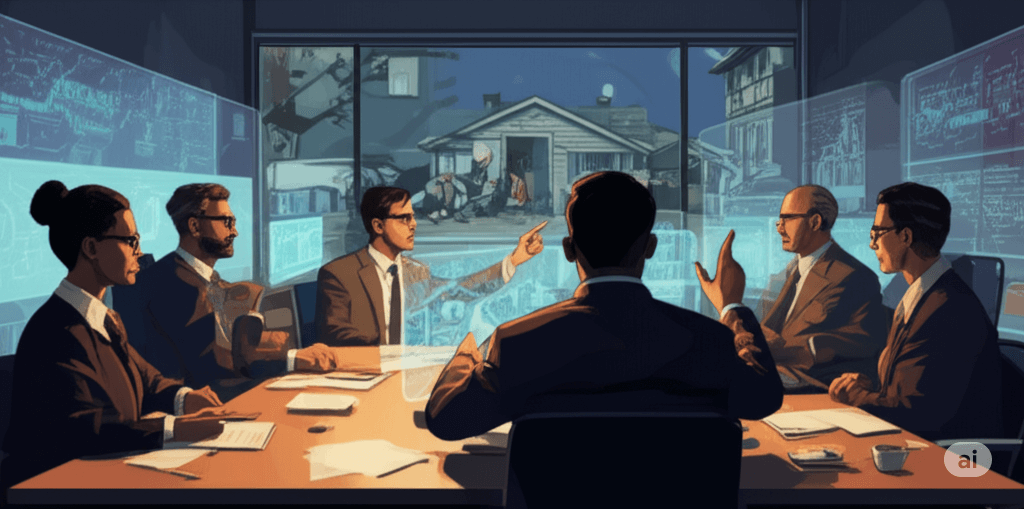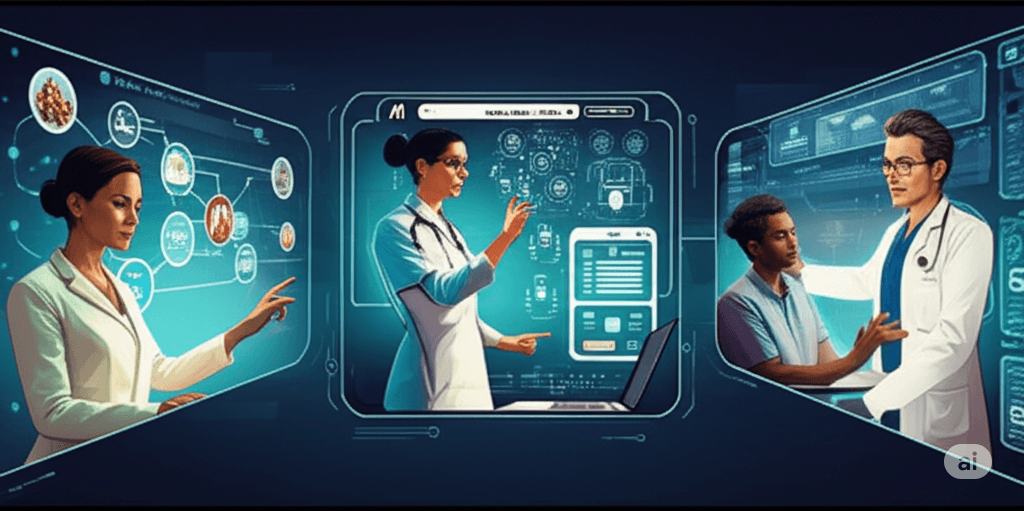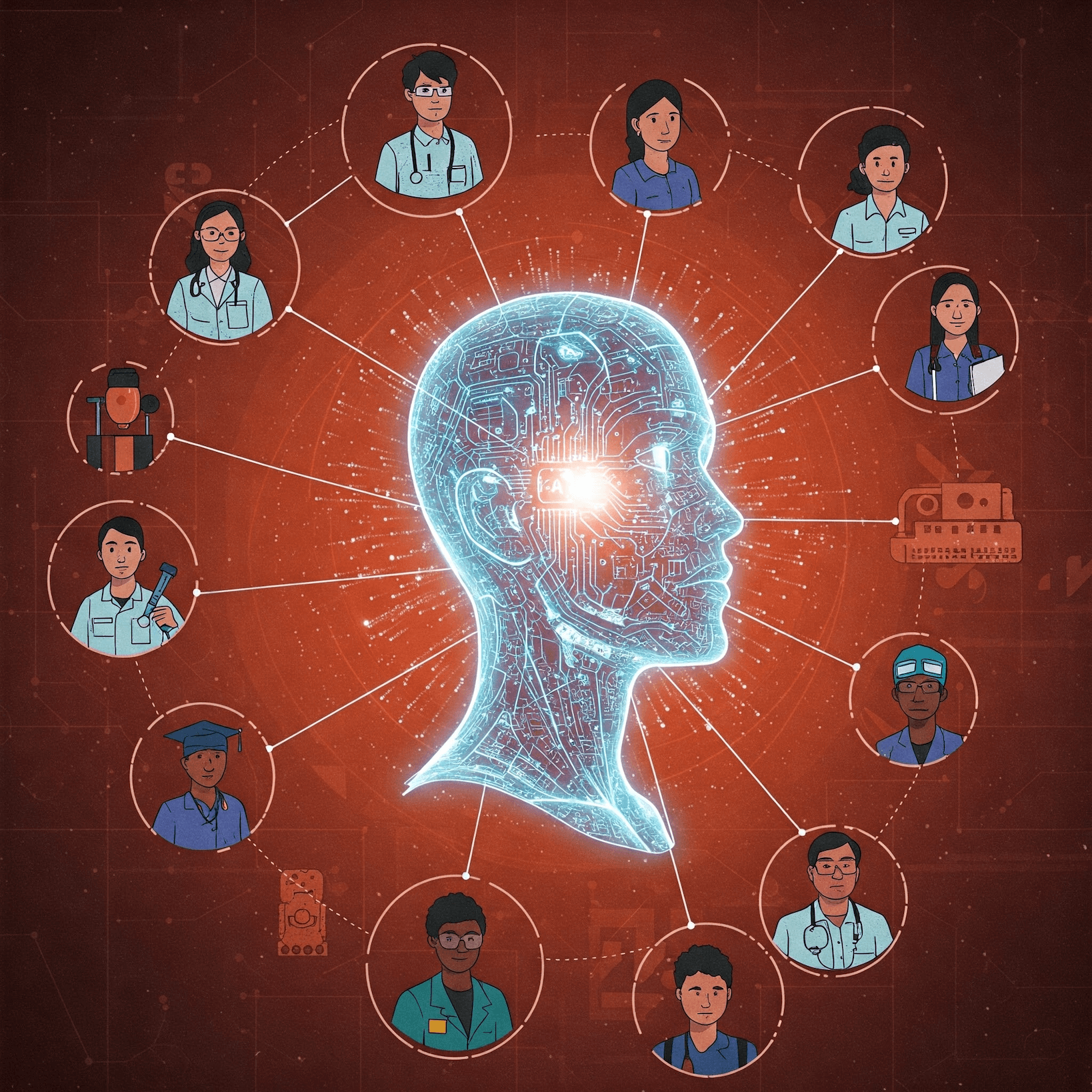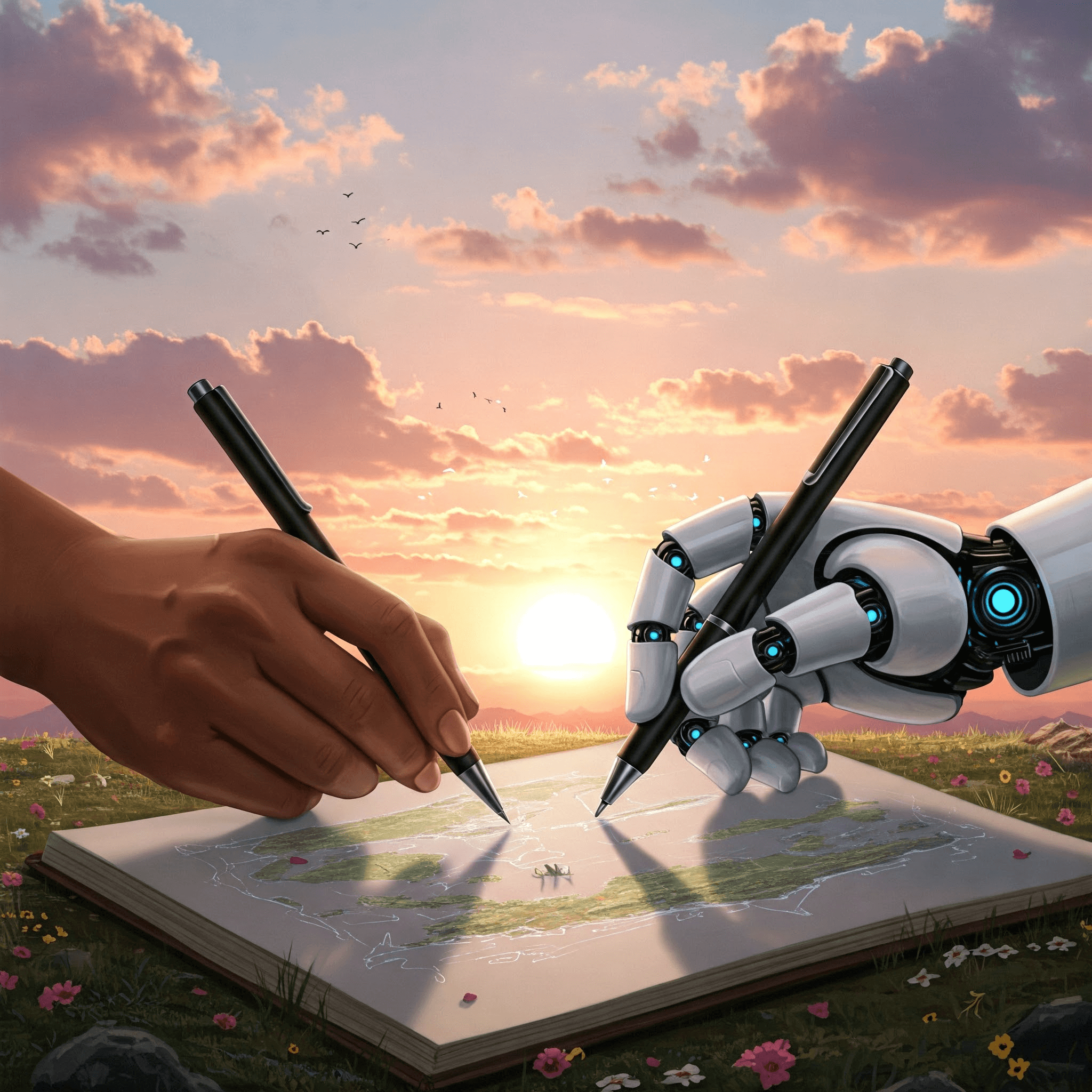The Promise and Peril of AI's Global Shift
As artificial intelligence continues its exponential advancement, we find ourselves at a crucial inflection point in human history. Many in the technology sector—myself included—marvel at AI's extraordinary capabilities and envision a future where these systems dramatically improve human welfare, democratize access to resources, reduce costs for basic necessities, and accelerate scientific discovery.
Yet this optimistic vision exists in stark contrast to emerging realities. As we edge closer to artificial general intelligence (AGI) and potentially artificial superintelligence (ASI), industries across the spectrum face disruption. Job displacement is accelerating, urban homelessness is expanding, and more people find themselves struggling as skills honed over lifetimes become increasingly devalued in our rapidly evolving economy.
This juxtaposition raises a fundamental question: Must progress toward an AI-enabled utopia necessarily entail a painful transitional period of economic displacement and human suffering? Or might there be alternative paths forward that harness today's AI capabilities to address immediate societal challenges rather than deferring solutions to some future technological breakthrough?
The Narrative of Inevitable Disruption
A prevailing narrative within AI advancement circles suggests that economic pain is simply the cost of progress—an unavoidable transitional phase on the path to a better world. This perspective echoes historical technological revolutions, where new systems and methods rendered previous skills obsolete while eventually creating new opportunities.
This viewpoint carries a certain logical appeal. After all, the transition from agricultural to industrial economies similarly displaced workers before creating unprecedented prosperity. The same occurred during the shift from industrial to information economies.
However, the speed, scope, and nature of AI transformation suggest this comparison may be flawed. Unlike previous technological shifts, AI's capacity to automate cognitive work threatens to outpace our ability to retrain and adapt—potentially leaving large segments of the population permanently sidelined from economic participation.
The question then becomes: Are we collectively using this "inevitable disruption" narrative to avoid confronting difficult societal challenges that exist today?
The Psychology of Technological Deferral
There's a curious psychological pattern emerging in how we discuss AI's societal impacts. Many technologists and policymakers appear to be engaging in what we might call "technological deferral"—the tendency to postpone addressing immediate social problems by implicitly or explicitly suggesting that future AI systems will eventually solve them.

This pattern manifests in conversations about poverty, homelessness, healthcare access, and other pressing issues. Rather than tackling these challenges with the tools and resources currently available, we comfort ourselves with the notion that sufficiently advanced AI will eventually render such problems obsolete.
This deferral serves a psychological function: it absolves us from the messy, complex work of addressing deeply entrenched societal issues in the present. It's far more comfortable to imagine a future technological savior than to confront the difficult trade-offs, value judgments, and political compromises required to address these problems today.
Reclaiming Agency: Using Today's AI to Address Current Needs
The irony in this technological deferral is that current AI systems already possess remarkable capabilities that could be directed toward alleviating present-day suffering. While they may not be capable of autonomously solving our most complex problems, they could significantly amplify human efforts in crucial domains.
Consider how today's AI could be deployed to:
Optimize resource distribution systems to reduce waste and ensure essentials reach those in need more efficiently
Provide personalized education and retraining for workers displaced by automation, adapting to individual learning styles and backgrounds
Enhance healthcare accessibility and quality through improved diagnostics, treatment planning, and preventative care, particularly in underserved communities
Streamline bureaucratic processes that currently create barriers to receiving aid and support services
Generate and evaluate policy alternatives addressing structural inequalities, presenting options that might not occur to human policymakers alone

Each of these applications leverages existing AI capabilities rather than awaiting hypothetical future breakthroughs. They acknowledge human agency and responsibility in directing technological power toward specific social ends rather than treating societal improvement as an inevitable byproduct of technological advancement.
The False Dichotomy of Progress vs. Welfare
The framing of technological progress and human welfare as competing interests represents a false dichotomy. We need not choose between advancing AI capabilities and addressing immediate human needs—in fact, the former can directly enable the latter if we consciously direct it toward that purpose.
This perspective requires rejecting both uncritical techno-optimism and reflexive technophobia in favor of a more nuanced approach:
Recognizing that technology is neither inherently liberating nor inherently oppressive, but rather a tool whose effects depend on how we collectively choose to deploy it
Acknowledging that market forces alone are unlikely to direct AI development toward maximizing human welfare, necessitating thoughtful policy interventions and ethical frameworks
Understanding that technological development doesn't occur in a vacuum but within existing power structures that influence who benefits and who bears the costs of disruption
Insisting that those developing and deploying AI systems accept responsibility for their societal impacts rather than treating negative outcomes as inevitable "transition costs"
A More Humane Path Forward
What might a more humane approach to AI advancement look like in practice? Several principles could guide us:
Inclusive Development and Deployment
AI systems should be developed with input from diverse stakeholders, including those most likely to be affected by their deployment. This means engaging not just technical experts but also workers across industries, community representatives, ethicists, and others who can speak to potential impacts.

Directed Investment toward Human Needs
Both public and private investment in AI should prioritize applications that address fundamental human needs and expand capabilities rather than merely optimizing for engagement, consumption, or surveillance. This might include AI systems focused on:
- Environmental sustainability and climate adaptation
- Public health infrastructure and pandemic preparedness
- Food security and agricultural resilience
- Educational access and effectiveness
- Housing affordability and stability
Anticipatory Governance and Safety Nets
Rather than waiting for disruption to occur before responding, we should proactively implement policies that help communities adapt to technological change:
- Universal basic income or similar mechanisms ensuring economic security amid transition
- Portable benefits systems decoupled from specific employers
- Lifelong learning infrastructure enabling continuous skill development
- Community wealth building strategies fostering local economic resilience
Measured Pace of Deployment
While continued research into advanced AI capabilities is valuable, we need not rush deployment of potentially disruptive systems before appropriate safety measures, governance frameworks, and adaptation strategies are in place. Technical advancement and societal adaptation should proceed in tandem rather than at drastically different speeds.
Confronting the Difficult Conversations
Moving beyond technological deferral requires confronting the societal challenges we often avoid discussing directly:
- How do we define and measure human flourishing beyond simple economic metrics?
- What responsibilities do those benefiting most from technological advancement have toward those bearing the costs of disruption?
- How do we balance individual freedoms with collective welfare in directing technological development?
- What voice should democratic processes have in shaping technologies with society-wide impacts?
These questions have no easy answers, but engaging with them honestly is essential to ensuring that artificial intelligence serves genuine human flourishing rather than narrow interests or abstract notions of "progress" disconnected from lived human experience.
Conclusion: Writing a Better Story
The narrative we construct around AI's global impact matters enormously. It shapes investment decisions, policy priorities, research directions, and our collective sense of agency in the face of technological change.
By rejecting both uncritical techno-utopianism and the assumption that painful disruption is inevitable, we can write a better story—one in which technological advancement and human welfare advance together, where today's AI capabilities are directed toward addressing immediate needs rather than deferred to some hypothetical future, and where the transition to an AI-augmented society happens with rather than to the majority of humanity.
This alternative narrative isn't merely more humane; it's likely more sustainable. A transition that distributes benefits broadly while mitigating harm will likely face less resistance than one that concentrates gains while dismissing losses as necessary sacrifices.
The choice before us isn't whether artificial intelligence will transform society—that transformation is already underway. The choice is whether we direct that transformation through conscious collective action toward a more just, sustainable, and flourishing world, or whether we abdicate that responsibility to market forces, existing power structures, and the comfortable fiction that technology alone will eventually solve our deepest societal challenges.
The future remains unwritten. It's time we picked up the pen.
